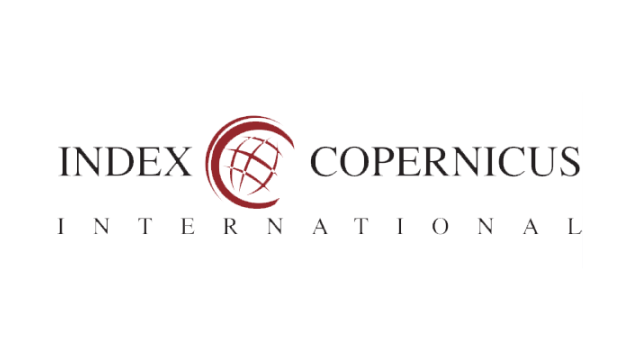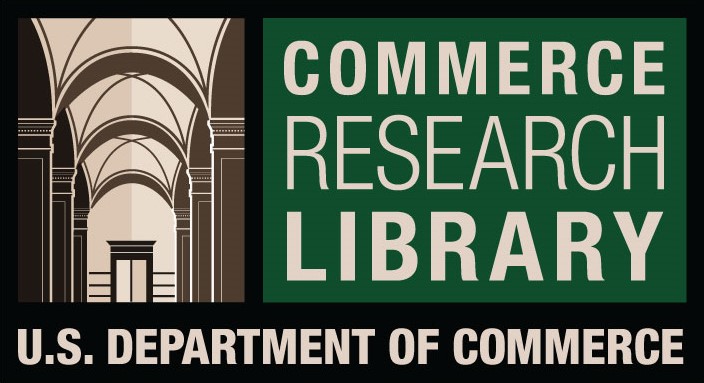The Role of Learning Behaviors in Explaining the Relationship between Employee Orientation and the Performance of Banking Service Recoveries (Analytical Study).
DOI:
https://doi.org/10.61841/xx8vjq25Keywords:
Learning Behaviors, Employee Orientation, Performance of Banking, Service Recoveries.Abstract
The present study aims to explore the relationship between employee orientation and the performance of banking service recoveries throughout the mediator role of learning behaviors from a sample of workers in governmental banks in Al-Muthanna Governorate (Al-Rashid Bank, Al-Rafidain Bank, the Real Estate Bank, and the Agricultural Bank). In addition, the sample of the present study was 137 workers with differences in their academic achievement and manageable positions. This research has been conducted based on major hypotheses that are branched into other hypotheses. The study has used to test the hypotheses, which is based on a set of suitable statistical tools represented by confirmatory factor analysis and structural modeling equation. The findings showed a set of conclusions and recommendations, one of the most important which was exploring the relationship between employee orientation and banking service recoveries, as it has a great importance not only because of its importance in the competitive advantage issues but also to help other workers to find solution to keep the new and existing customers. Hence, keeping the existing customers represents one of the major factors.
Downloads
References
1. A Abbawi, ZaidMunir (2006) "Goal Management", Treasures Treasury for Publishing and Distribution, Amman, Jordan.
2. Al-Musawi, MurtadaNehme ((2017 “Preparedness of Service Reform Systems and Their Impact on the Customer’s Response, An Analytical Study of the Views of a Sample of Customers of Tourism Companies Operating in Iraq”), Master Thesis in Business Administration, Al-Qadisiyah University, College of Administration and Economics.
3. Al-Sahbani, Hossam Salem (2016) “Organizational culture and its impact on developing creative behavior in the Palestinian ministries in the Gaza Strip.” Thesis submitted to obtain a master’s degree in Leadership and Management, Al-Aqsa University, Academy of Management and Policy for Graduate Studies.
4. Al-Ubaidi, YusraAmer Abdul Karim (2015) “The Impact of Investment Strategies and Behavioral Factors on Financial Investment Decisions” PhD thesis in Business Administration, University of Baghdad, College of Administration and Economics.
5. Ashill, N. J.&Carruthers, J. &Krisjanous, J.(2005).Antecedents and outcomes of service recovery performance in a public health-care environment. Journal of service Marketing, Vol. 19, No. (5), pp 293- 308 .
6. Bayless, G. E. (2009). High school students' personal epistemologies, goal orientation, and academic performance. Thesis for doctor of Philosophy, University of California, Santa Barbara.
7. Boateng, H. &Agyemang, F.(2015). The effects of knowledge sharing and knowledge application on service recovery performance.Business Information Review, Vol. 32, No.(2), pp 119-126 .
8. Chang, W.L. & Chang, H.C. & Chang, T.M.(2013). A System Dynamics Approach to E-Service Recovery and E-Trust . Journal of Information Management, Vol. 20, No. (2), pp. 193-218.
9. Chu, Y-H. (2007). A Comparative Study of the Influence of Failure Classes, Failure Severity, and the Effectiveness of Recovery Effort on Recovery Satisfaction and Consequent Customer Loyalty in the Casual Dining Restaurant Segment in the U.S.: An Application of Justice Theory. Doctoral Dissertation, Oklahoma State University .
10. Crossan, M. M., Lane, H. W., & White, R. E. (1999). An organizational learning framework: From intuition to institution. Academy of management review, Vol. 24, No. (3), 522-537.
11. DeGeest, D. S. (2014). Masters, showoffs, and slackers: the effects of goal orientation congruence and similarity on positive and negative contributions to team success. Thesis for doctor of Philosophy, University of Iowa.
12. Dweck, C. S. (1986). Motivational processes affecting learning. American psychologist, Vol. 41, No. (10), pp 1040-1048.
13. Edmondson, A. (1999).Psychological safety and learning behavior in work teams. Administrative science quarterly, Vol. 44, No. (2), pp 350-383.
14. Edwards, O. V. (2010).The Effect of goal orientation of attention, learning, and metacognitive awareness. Thesis for doctor of Philosophy, Graduate College ,University of Nevada, Las Vegas.
15. El-Helaly, N. & Ebeid, A. & El-Menbawe, A. (2015). The Role of Customer Knowledge Management Process in service recovery performance: An Applied Study to the Egyptian National Railways. International Journal of Management and Applied Research, Vol. 2, No.(1), pp.1-20 .
16. Elliot, A. J. &Harackiewicz, J. M. (1996). Approach and avoidance achievement goals and intrinsic motivation: A mediational analysis. Journal of personality and social psychology, Vol. 70, No. (3), pp 461-475.
17. Elliot, A. J. (1999).Approach and avoidance motivation and achievement goals. Educational psychologist, Vol. 34, No.(3), pp 169-189.
18. Gao, J. (2013).Basic cognitive experiences and definitions in the Longman Dictionary of Contemporary English. International Journal of Lexicography, Vol. 26, No. (1), pp 58-89.
19. Gong, Y. & Kim, T. Y. & Lee, D. R. & Zhu, J. (2013). A multilevel model of team goal orientation, information exchange, and creativity. Academy of Management Journal, Vol. 56, No. (3), pp 827-851.
20. Guchait, P.& Lee, C.& Wang, C. Y.& Abbott, J. L. (2016). Impact of error management practices on service recovery performance and helping behaviors in the hospitality industry: The mediating effects of psychological safety and learning behaviors. Journal of Human Resources in Hospitality & Tourism, Vol. 15, No. (1), pp 1-28.
21. Hahn, H. J. & Mathews, M. A. (2018).Learning behaviors as a linkage between organization-based self- esteem and in-role performance. Journal of Management & Organization, pp 1-16.
22. Heath, C. &Sitkin, S. B. (2001). Big‐B versus Big‐O: What is organizational about organizational behavior?. Journal of Organizational Behavior: The International Journal of Industrial, Occupational and Organizational Psychology and Behavior, Vol. 22, No. (1), pp 43-58.
23. Hess R. L. Jr.&Ganesan, S. & Klein, N. M. (2003). service failure and recovery: The Impact of Ties Factors on Customer Satisfaction. Journal of the Academy of Marketing Science, Vol. 31, No. (2), PP127- 145 .
24. Hoffman, D. L. & Novak, T. P. (2017). Consumer and object experience in the internet of things: An assemblage theory approach. Journal of Consumer Research, Vol. 44, No. (6), pp 1178-1204.
25. Ilgen, D. R., Fisher, C. D., & Taylor, M. S. (1979). Consequences of individual feedback on behavior in organizations. Journal of applied psychology, Vol. 64, No. (4), 349-371.
26. Janssen, O. & Van Yperen, N. W. (2004). Employees' goal orientations, the quality of leader-member exchange, and the outcomes of job performance and job satisfaction. Academy of management journal, Vol. 47, No.(3), pp 368-384.
27. Kostopoulos, K. C. & Spanos, Y. E. & Prastacos, G. P. (2011). Structure and function of team learning emergence: A multilevel empirical validation. Journal of Management, pp 1-32.
28. Kurdi, Ahmed El-Sayed (2011) "Organizational Behavior Management".
29. Lawson, S. (2005). Achievement goal orientations in physical rehabilitation.Thesis for doctor of Philosophy, University of Maryland.
30. Li. C-Y. & Fang, Y-H. (2016). How online service recovery approaches bolster recovery performance? A multi-level perspective. Journal of service Business, Vol. 10, pp 179 -200.
31. Liao, Hui. (2007). Do It Right This Time: The Role of Employee Service recovery performance in customer- perceived justice and customer loyalty after service failures. Journal of Applied Psychology, Vol. 92, No. (2), pp 475-489 .
32. Lipshitz, R.& Popper, M. && Friedman, V. J. (2002). A multifacet model of organizational learning. The journal of applied behavioral science, Vol. 38, No. (1), pp 78-98.
33. Loreiro, I. S. C. S. (2018). Supportive Behaviours and Team Effectiveness: The mediating role of Team Learning Behaviours.(Master's thesis), Faculdade de Psicologia e Ciências da Educação - Universidad de Coimbra.
34. Mat, S. (2016). Employee motivation and learning behaviours in selected manufacturing industries. Thesis of doctoral for Philosophy, Loughborough University.
35. McKinney, A. P. (2003). Goal orientation: A test of competing models.Thesis for doctor of Philosophy, Blacksburg, Virginia Tech.
36. Mehta, A. & Feild, H. & Armenakis, A. & Mehta, N. (2009). Team goal orientation and team performance: The mediating role of team planning.Journal of Management, Vol. 35, No. (4), pp 1026-1046.
37. Miner, A. S.& Mezias, S. J. (1996). Ugly duckling no more: Pasts and futures of organizational learning research. Organization science, Vol.7, No. (1), pp88-99.
38. Motta Veiga, S. P. & Turban, D. B. (2014). Are affect and perceived stress detrimental or beneficial to job seekers? The role of learning goal orientation in job search self-regulation. Organizational Behavior and Human Decision Processes, Vol. 125, No. (2), pp 193-203.
39. Muhammad, ThaerSaadoun (2016) “Organizational Behavior in Business Organizations” Ramah Center for Human Resources Development and Research, Ammaan.
40. Piaralal, N.k. & Mat, N. &Piaralal, S.K. &Bhatti, M.A. (2014). Human resource management factors and service recovery performance in Malaysian life insurance industry. European Journal of Training and Development, Vol. 38, No. (6), pp. 524-552 .
41. Pieterse, A. N. & Van Knippenberg, D. & van Ginkel, W. P. (2011). Diversity in goal orientation, team reflexivity, and team performance. Organizational Behavior and Human Decision Processes, Vol. 114, No. (2), pp 153-164.
42. Porath, C. L. & Bateman, T. S. (2006). Self-regulation: from goal orientation to job performance. Journal of Applied Psychology, Vol. 91, No. (1), pp 185-192.
43. Runtgting, T.&Ke, C. & Cheryl, L. (2009).The dynamic role of ‘‘should expectation’’ in service recovery paradox. Frontiers of Business Reserarch in China, Vol. 3, No. (4), pp 583-598.
44. Sparks, B.A. & McColl-Kennedy, J.R. (2001). Justice strategy options for increased customer satisfaction in a services recovery setting. Journal of Business Research, Vol. 54, pp 209-218 .
45. VandeWalle, D. &Cron, W. L. & Slocum Jr, J. W. (2001). The role of goal orientation following performance feedback. Journal of applied psychology, Vol. 86, No. (4), pp 629 - 640.
46. Wang, M. & Takeuchi, R. (2007). The role of goal orientation during expatriation: a cross-sectional and longitudinal investigation. Journal of Applied Psychology, Vol.92, No. (5), pp 1437-1445.
47. Webb, J.W. (2009). Goal orientation as shaping the firm's entrepreneurial orientation and performance.Thesis for doctor of Philosophy,Texas A&M University.
48. Woods, A. (2015). Examining the Ties Between Trait Goal Orientation and Behavior in Team Debriefing Sessions.A thesis submitted in partial fulfillment of the requirements for the Honors in the Major Program in Psychology, University of Central Florida.
Downloads
Published
Issue
Section
License

This work is licensed under a Creative Commons Attribution 4.0 International License.
You are free to:
- Share — copy and redistribute the material in any medium or format for any purpose, even commercially.
- Adapt — remix, transform, and build upon the material for any purpose, even commercially.
- The licensor cannot revoke these freedoms as long as you follow the license terms.
Under the following terms:
- Attribution — You must give appropriate credit , provide a link to the license, and indicate if changes were made . You may do so in any reasonable manner, but not in any way that suggests the licensor endorses you or your use.
- No additional restrictions — You may not apply legal terms or technological measures that legally restrict others from doing anything the license permits.
Notices:
You do not have to comply with the license for elements of the material in the public domain or where your use is permitted by an applicable exception or limitation .
No warranties are given. The license may not give you all of the permissions necessary for your intended use. For example, other rights such as publicity, privacy, or moral rights may limit how you use the material.









